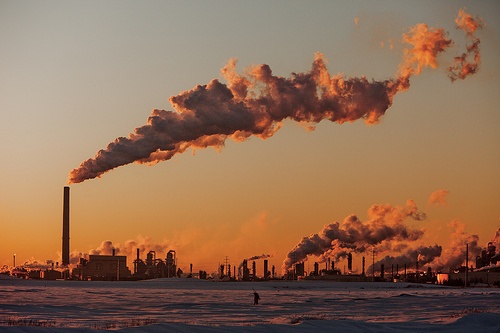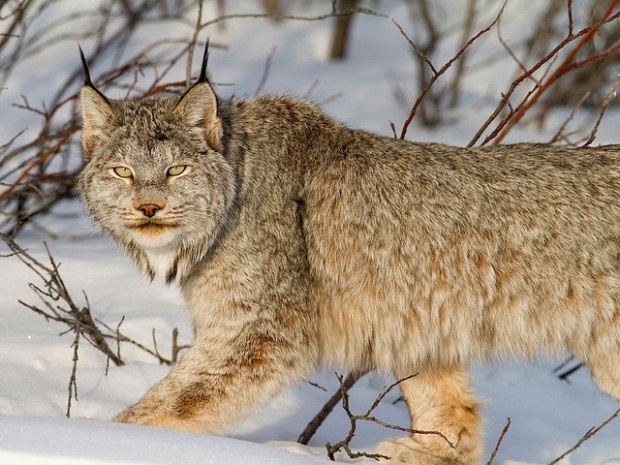We have much more to do and your continued support is needed now more than ever.
Jackpine Mine: Shell Oil’s Caribou Killer

The existing Jackpine mine is already one of the largest in the area, producing 200,000 barrels of tar sands crude every day — more than three billion gallons every year — and by expanding the mine Shell hopes to add an extra 100,000 barrels per day to that figure (for a total of 300,000 bpd). By any measure the impacts to the region would be devastating: almost 50 square miles of destroyed or disturbed land in the boreal forest, a 128 billion gallon “tailings pond” for the project’s toxic waste, mining-out of eight miles of the Muskeg River. The mining operation alone would produce more carbon dioxide than half a million cars on the road every day, and that’s before you factor in the pollution created when that oil is burned.

Wildlife in peril
In its submission to the Canadian Environmental Assessment Agency (CEAA), Shell tried to gloss over the toll that Jackpine would take on wildlife, but its own statistical projections (not to mention common sense) show that animals would be hit hard by the huge operation: Woodland caribou, which are already suffering huge population declines due to industrial development in the boreal forest, would lose about half their habitat in the area (compared to pre-industrial numbers); wood bison would lose almost 40%, and the Canada lynx over 30%. Birds are hit even harder, with the Canada warbler losing over 60% of its habitat, the black-throated green warbler about 44%, and the barred owl 43%. Species like wolverine, moose, beaver, and black bears would find themselves cut off from about a quarter of their land in the mine area.

We know that tar sands mining permanently damages the environment and destroys forests and wetlands with vast infrastructure, open pit mines, and toxic wastewater ponds up to three miles wide. Waterbirds mistake those tailings ponds for natural ponds. They land in the contaminated water and get coated in oil and other toxins. They often drown, die from hypothermia, or suffer from ingestion of toxins.
Tribal groups fight back
The Athabasca Chipewyan First Nation, which is already wrestling with Shell over the company’s steamroller approach to development, is challenging the project in court, pointing out the harm that traditional tribal lands will suffer and saying that Shell and the provincial government have ignored their legal obligation to consult with tribes.
“We don’t want to take Shell to court, but we feel our treaty rights need to be addressed,” Eriel Deranger, a communications coordinator for the Athabasca Chipewyan First Nation, said. “We have repeatedly asked for more meaningful consultation, and don’t believe the government has done its due diligence. We are taking this very seriously.”
For those of us in the US who have seen poorly tar sands pipeline companies treat tribes and other communities, this is a depressingly familiar refrain. But we should also recognize that Shell’s projects are directly linked to our demand for oil, and we can put a stop to mines like Jackpine by shifting to cleaner energy sources and refusing to be the middleman for Canada’s dirty fuel.
![]() Speak up to protect wildlife and our planet’s future! Tell the White House to say NO to tar sands pipelines like Keystone XL.
Speak up to protect wildlife and our planet’s future! Tell the White House to say NO to tar sands pipelines like Keystone XL.
For a comprehensive breakdown of the Jackpine Mine’s impacts on land, water, air, and wildlife, check out the Pembina Institute’s white paper here, or visit StopShellNow.com to find out more about how you can get involved.





















